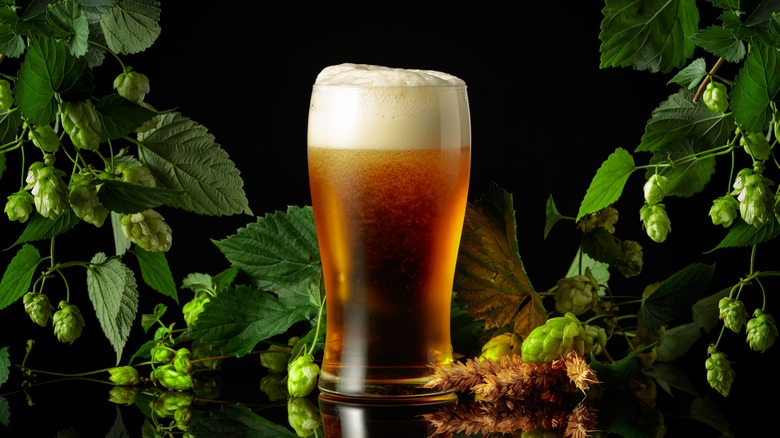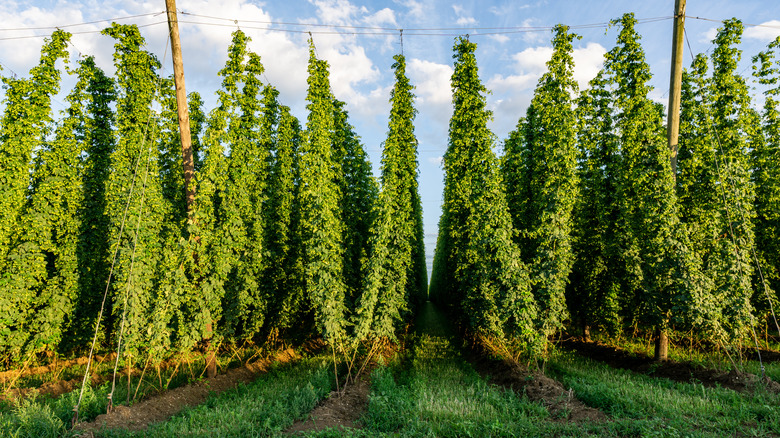A New Study Suggests How Climate Change May Affect The Taste (And Price) Of Beer
From Amalfi coast's lemons to Japan's tuna sashimi and from the world's chocolate supply to the wine industry, it seems as if there's not one of life's luxuries that the effects of climate change haven't left untouched. But now, it's impacting some of humanity's more humble enjoyments as well. As if your coffee wasn't enough, a new study published in the journal Nature suggests it could also affect the taste and price of your beer. The findings might just be enough to change some of climate change's greatest disbelievers into environmental activists. Entire elections could be turned. After all, there's not much that Americans love more than beer — and maybe, just maybe, this is the one thing both parties could get behind.
All jokes aside, the study's findings are serious — particularly for hops, one of the most essential ingredients used in beer. A combination of increased temperatures and decreased precipitation caused by climate change have led the researchers behind the study to predict as much of an 18% decline in crop yields by the year 2050, causing beer prices to increase. At the same time, however, those conditions are projected to impact the hop's "alpha content" — or the level of alpha acids that directly influence a beer's aroma and flavor. So, by 2050, not only will your beer likely cost you more, but the alpha content of the hops used to make it will have decreased anywhere from 20 to 30%, meaning it might not taste the same.
What this means for the rise of craft beer
While there's no reason for you to freak out now, this does pose some major challenges for the craft beer industry as a whole — and the timing isn't great, either. Craft beer is only rising in popularity, and consumer preferences have been skewing toward the flavors and aromas of more "hoppy" beers for years. According to the study, the rising trend toward these high-quality, late-summer hop-dependent flavors came in direct contrast to previous demands for beers with lower alpha contents. This not only triggered a rise in microbreweries around the globe but also a surge in the worldwide demand for high-quality hops — an ingredient restricted to the environmental conditions of regions that were already considered small.
So, if hop producers weren't already feeling the pressure, the heat waves and extended drought periods associated with climate change mean that they will be. But that doesn't mean they're completely doomed. According to the study, many hop farmers can, and already have, responded by relocating their hop gardens, building irrigation systems, breeding more resistant varieties, and more. Plus, things like tilling and cultivating the soil less frequently and the use of cover crops can help mitigate droughts. So, even though researchers say the area in which hops grow will have to increase by 20% to make up for the decrease in their alpha content, only time will tell how it will affect your favorite beer.

